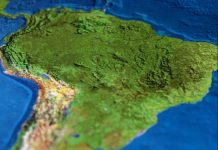Africa has been touted as the “next great investment destination” in VC circles for at least a decade. But while many still believe Africa’s star is soon to rise, plenty of investors have realised that its time to shine is actually already here. Despite a surge of unicorns in the region post-pandemic, however, access to capital for startups remains a perennial problem. AltAssets’ Karin Wasteson investigates.
The African continent saw the birth of five unicorns in 2021. At the onset of the pandemic in 2020, those in the population with Internet access turned to healthcare services, tutoring and grocery shopping online, along with the rest of the world.
The pandemic paved the way for increased digitalisation in Africa. Does this, combined with the untapped quality of its domestic market, mean we can expect more unicorns to emerge soon?
And if this is the case, how much can the African startup ecosystem keep growing given its current unique challenges, including its domestic capital constraints?
Janade Du Plessis is the co-managing partner of two venture capital funds: Launch Africa Ventures, founder of Five35 Ventures and, previously, the impact investment fund Abrazo Capital. He has invested in more than 150 companies.

Du Plessis says that pre the economic downturn, in terms of numbers African startups were on a steep upward trajectory – yet he concedes things have slowed down a bit since September last year. “You cannot talk about the number of startups without talking about capital, though,” he said, and added that you can’t compare Africa and Europe.
“Startups are only as good as the capital that is there to support them,” he explained. First and foremost proper regulation is needed, in his view.
“There are also huge currency fluctuations. So the Africa risk is a real thing for foreign investors.” In 2022, African startups raised $6.5bn, up from $5bn the year before, and around 60 percent of that capital came from foreign investors, according to Enterprise Egypt.
Many European VC funds have realised the opportunities however and set up shop recently, according to Du Plessis. “There are certain VC funds, especially in the US, that don’t have access to the best deals.”
“Some European firms are now thinking: ´if I can’t get access to the best deals in mature markets, if I instead just put a little bit of capital into Africa or other emerging markets, and if I team up with a good name, I can get access to the best deals there.”
Nigeria, which is home to the highest number of unicorns on the vast and diverse continent, is an example of where African corporates have started to engage with startups within the last few years.
“We need more corporates. Corporates bring opportunities for partnerships; markets, revenue generation and R&D,” Khaled Ben Jilani, a senior partner at private equity firm AfricInvest Group, told AfricArena. “They are a very important part of the ecosystem.”
The current economic crisis is affecting Africa similarly to the US and Europe, in Du Plessis view. “When I bought my first house, the mortgage rate was 19% and that was the standard. So for me, anything below 19% is a bargain. By the same token, startups in Africa don’t know what it’s like to do business in a low interest rate environment. So the bounce back will be a bit longer for us.”
Du Plessis also mentions the specific “bias” that exists towards Africa. “If Silicon Valley Bank was a bank in Africa, the entire continent would be made bad. But because its in America, we will barely have any memory of it going forward. By the next two or three years we will forget about it and there will be something else. So I’m very grateful it happened over in the US, because for a moment we also realised that mishaps happen everywhere.”
He continued: “If you focus on something and if you label something all the time, then that’s what Africa is painted with. We always talk about how there’s no governance, we always talk about how there’s no regulation and of course we start believing it then. Every now and then you get moments where it starts to happen somewhere else too.
Around 44 of Du Plessis 151 portfolio companies are continuing to raise follow-up funding rounds. Although those rounds are taking longer in the current climate, “they are still happening,” he added.
“Which means that African founders are solving real world problems and are able to mitigate market shocks because the fundamentals of the business are so strong. And that’s a positive sign.”
According to the “Techstars 2023 State of Innovation Survey,” which gathers insight on how venture capital investors view global innovation, commentators expect that Africa will leapfrog Europe by producing more startups than Western Europe in 2023.

“I find the idea of Africa producing more startups than Europe to be both fascinating and promising. As an entrepreneur myself, I believe that Africa has a wealth of untapped potential when it comes to innovation and business,” said Selam Wondim, co-founder at Ethiopa-based startup Birrama Digital.
“The continent does face challenges such as high inflation and unemployment rates, and these challenges are a driver for the African youth to be part of the solution. It is reasonable to believe that there will be more startups for years to come, and initiatives like Afrilabs and Timbuktu Innovation Hub are playing a vital role in creating more startups,” she added.
“The success rate of African startups may be lower than that of European startups though, due to factors such as poor infrastructure, low buying power, and low adoption rates of new groundbreaking technologies.”
Access to finance is one of the main challenges for entrepreneurs in Africa, according to Samiya Godu, president of the Ethiopian Youth Entrepreneurs Association. “VCs and angel investors don’t have a functioning legal framework enabling the ecosystem so that entrepreneurs can realise their vision.”
Ethiopia, for example, doesn’t have any startup proclamation or IP protection, such as the Startup Act that was introduced in Tunisia in 2018 in order to promote growth. The act ensures, among other things, that startups don’t need to pay any tax on the first five years of revenues.
It was after Covid that the increased use of technology really took off, according to Godu. “Most African countries leveraged their technological ecosystem during this time. For entrepreneurs, problems actually mean an opportunity to start their own company,” she added.
Copyright © 2023 AltAssets



























